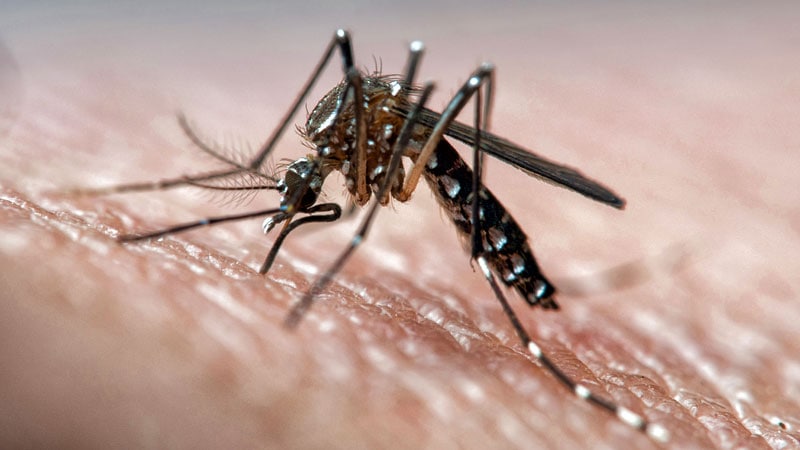TOPLINE:
Monthly administration of ivermectin for 3 consecutive months at the beginning of the short rainy season was associated with a lower incidence of malaria compared with albendazole in an area with high coverage and use of bed nets, with no safety concerns identified during the trial.
METHODOLOGY:
- Malaria remains a significant global health issue, and rising mosquito resistance to insecticides undermines control measures. As a result, ivermectin, a broad-spectrum antiparasitic drug, has gained interest as a potential candidate to reduce malaria transmission.
- Researchers conducted a cluster-randomized trial in Kwale, Kenya, to evaluate the efficacy and safety of mass ivermectin administration at the start of the short rainy season (October-December) for malaria transmission control.
- A total of 84 clusters comprising 28,932 participants — including all male and nonpregnant female residents weighing more than 15 kg and without severe illness — were identified.
- They were randomly allocated to receive either ivermectin (400 μg/kg body weight) or albendazole (400 mg) once monthly for 3 consecutive months. Efficacy was assessed in 2871 children aged 5-15 years.
- The primary outcome was the cumulative incidence of malaria in children. Safety was assessed in all participants, with children followed up prospectively for 6 months after the first round of mass drug administration.
TAKEAWAY:
- The administration of ivermectin reduced malaria incidence by 26% compared with albendazole (2.20 vs 2.66 infections per child-year at risk; adjusted incidence rate ratio [IRR], 0.74; P = .02).
- A secondary analysis showed that the time to the first infection was 22.5% longer with ivermectin than with albendazole (120 vs 93 days).
- The incidence of adverse events per 100 treated participants was higher with ivermectin (6.19) than albendazole (3.75). Serious adverse events were rare — 0.023 and 0.037 per 100 treated participants in the ivermectin and albendazole groups, respectively (IRR 0.63; P = .46).
IN PRACTICE:
“This trial provides evidence to support the use of ivermectin as a complementary strategy for malaria control and prevention in areas where malaria is mesoendemic and transmission is perennial,” the authors wrote.
SOURCE:
The study was led by Carlos Chaccour, MD, PhD, ISGlobal in Barcelona, Centro de Investigación Biomédica en Red de Enfermedades Infecciosas in Madrid, and the Navarra Center for International Development, Universidad de Navarra in Pamplona, Spain. It was published online on July 23, 2025, in The New England Journal of Medicine.
LIMITATIONS:
The study was limited by the absence of data on the incidence of malaria before the intervention, potential underestimation of ivermectin’s effect due to more frequent artemether-lumefantrine use in the albendazole group, and higher treatment coverage in albendazole clusters, probably because of a lower pill burden with albendazole than with weight-based ivermectin dosing.
DISCLOSURES:
The study was supported by the BOHEMIA grant from Unitaid. Additionally, ISGlobal received support from the Spanish Ministry of Science and the Generalitat de Catalunya. The authors declared having no conflicts of interest.
This article was created using several editorial tools, including AI, as part of the process. Human editors reviewed this content before publication.
